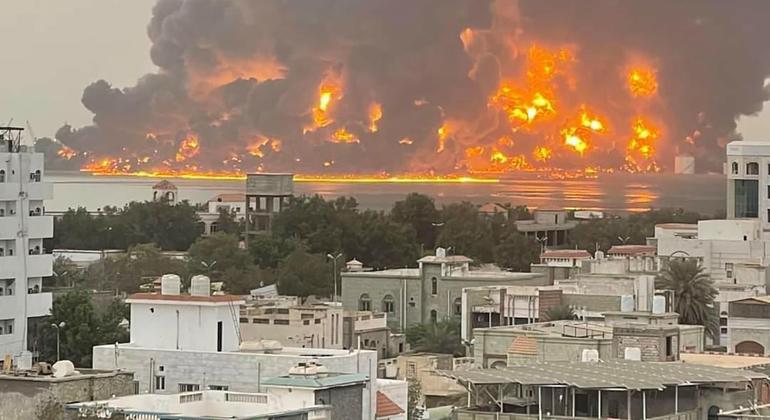The situation in Yemen has been deteriorating rapidly, with concerns that it may reach a tipping point if not addressed urgently. The conflict between Yemeni Government forces supported by a Saudi-led coalition and Houthi rebels, also known as Ansar Allah, has been ongoing since 2014. The Houthi rebels have also started targeting commercial ships in the Red Sea, a vital trade route, following the eruption of war in Gaza last October.
The regional dimension of the conflict has become increasingly pronounced, with a dangerous escalation seen last week. This was highlighted by a Houthi drone attack against Tel Aviv in Israel on July 19, followed by Israeli airstrikes on Hudaydah Port in Yemen and its oil and power facilities on July 20. The situation has raised concerns about the potential for further escalation and its impact on regional stability.
The targeting of international shipping in and around the Red Sea has also raised alarms, with recent developments indicating an increase in both the scope and precision of the threat. Commercial vessels have been attacked, civilians have lost their lives, and the crew of the Galaxy Leader, a cargo ship hijacked in November, remains detained. The disruption of international trade due to these attacks has further exacerbated the situation.
The United States and the United Kingdom have continued to carry out strikes on military targets in areas controlled by Ansar Allah. Despite these actions, there have been no signs of de-escalation, let alone a solution to the conflict. This lack of progress is concerning and underscores the real danger of a widespread escalation in the region.
Alongside the threats in the Red Sea, clashes along frontlines inside Yemen have also been reported. Military preparations and reinforcements have increased in recent months, with clashes occurring along multiple frontlines. While the violence levels are relatively contained compared to the period before the 2022 truce, the recent escalation trend and threats of a return to full-scale war highlight the volatile nature of the situation.
Despite these challenges, there have been some positive developments. The parties involved in the conflict have informed the Special Envoy that they have agreed on measures related to the banking and transport sectors. This could potentially be a step towards addressing some of the economic and logistical challenges exacerbated by the conflict.
The Special Envoy also raised concerns about the arbitrary detention of UN staff and personnel from international and national non-governmental organizations, civil society, and the private sector by Ansar Allah. Nearly two months have passed since these individuals were detained, with no information on their well-being or release. The prolonged detention of these individuals raises serious humanitarian concerns and underscores the need for their immediate release.
Overall, the situation in Yemen remains highly volatile and precarious. The lack of progress towards de-escalation and a lasting solution to the conflict continues to pose a significant threat to regional stability and security. Urgent action is needed to address the root causes of the conflict, alleviate the humanitarian crisis, and prevent further escalation that could have devastating consequences for the people of Yemen and the wider region.









